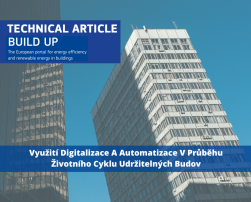
Využití Digitalizace A Automatizace V Průběhu Životního Cyklu Udržitelných Budov
Článek představuje využití digitalizace a automatizace ke zvýšení efektivity ve stavebnictví, snížení jeho environmentálních dopadů a zefektivnění provozu budov v celém jejich životním cyklu.
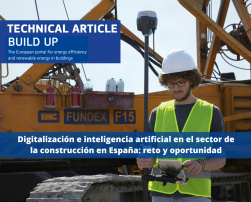
Digitalización e inteligencia artificial en el sector de la construcción en España: reto y oportunidad
Descarbonizar la construcción en España exige superar barreras tecnológicas, económicas y socioculturales. El artículo explora cómo las nuevas tecnologías y la digitalización pueden contribuir a la necesaria transformación del sector.
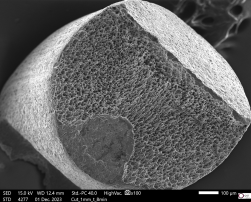
REVEAL: Unlocking aluminium’s potential for clean energy storage
This new REVEAL project's study demonstrates that Al6060 cut wire granules offer a safe, efficient, and scalable aluminium fuel solution for renewable energy storage, enabled by a unique pore-forming oxidation mechanism.
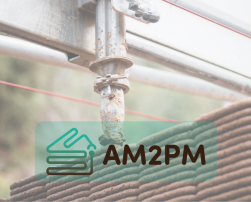
AM2PM: Revolutionising multistorey construction through predictive manufacturing and sustainable 3D printing
The AM2PM project aims to transform the construction sector using 3D printing and robotics for sustainable multistorey construction. By leveraging advanced materials and technologies, it targets reduced cement use, lower emissions, and greater efficiency.
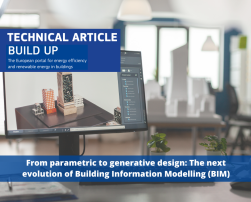
From parametric to generative design: The next evolution of Building Information Modelling (BIM)
Building Information Modelling (BIM) is entering a new era. This article explores the transition from traditional and parametric design methods to Artificial Intelligence (AI)-powered generative design—an innovative approach that optimises building performance, enhances energy efficiency, and increases competitiveness within the construction sector.
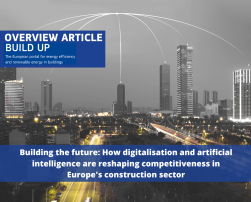
Building the future: How digitalisation and artificial intelligence are reshaping competitiveness in Europe's construction sector
In January 2025, the European Commission launched the Competitiveness Compass, a tool to guide strategic action over the next five years and reignite Europe’s economy. Within this framework, the digital transformation of the construction sector is emerging as both a necessity and a catalyst for greater competitiveness, productivity, and sustainability.

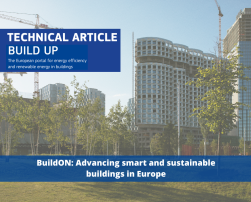
BuildON: Advancing smart and sustainable buildings in Europe
Digitalisation and smart technologies provide a pathway to affordable, adaptable, and scalable solutions. The BuildON project introduces an innovative Smart Transformer Toolbox (STT) to enable the seamless integration of diverse energy management systems, supporting automation, control, and optimisation.

The future of energy in three local success stories
This article explores three innovative examples from across Europe, showcasing how community-focused solutions can support a low-carbon future.
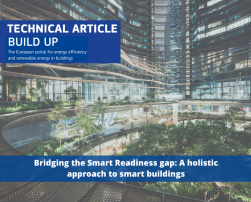
Bridging the Smart Readiness gap: A holistic approach to smart buildings
Smart solutions address building needs amid climate, net-congestion, and comfort challenges. A holistic approach, matching the needs of diverse stakeholders and taking existing technology and cybersecurity in account, is essential.